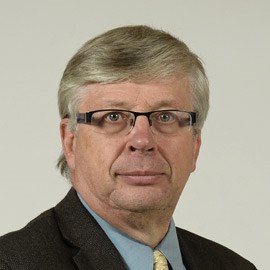This steaming hot summer seems a good time to discuss moderation in politics.
Like the weather, our politics has also become overheated.
This is not to say politicians shouldn’t have strong values and beliefs because the formula for success is never about standing for nothing.
Lest there be any doubt of this, consider the wheel spinning we are now seeing in the Justin Trudeau-led federal Liberal government.
But, ironically, what’s lacking in the Trudeau government is pretty much the same thing troubling conservative-minded federal and provincial parties and the provincial and federal NDP right now.
It isn’t just that the right has gone too far to the right or the left has moved too far to the left. This may be the reality, but that’s just a symptom of forgetting the fundamental need for wisdom, reason and balance and thinking they can win by exclusively appealing to their own base.
At the end of the day, it’s simply a matter of politicians understanding the value of moderation. You may have your own ideology, but you are elected to address the needs of the people who elected you.
Let us consider this is practical teams, beginning with the Saskatchewan NDP and its leader Ryan Meili.
Recently, crackerjack young reporters Alex MacPherson of the Saskatoon StarPhoenixand David Fraser of the Regina Leader-Post did an excellent analysis of why Meili seems to be getting so little traction.
Their piece notes Meili’s emphasis on issues of interest to him but, seemingly, of less interest to voters at large.
“With a few exceptions, such as the Global Transportation Hub boondoggle, the NDP has adopted a scattershot approach, dropping one issue for another rather than banging the same drum long enough for people to notice,” the reporters noted.
“Rather than bringing up standard political hot potatoes like health, education and the economy, Meili and his caucus have concentrated on niche issues that, while not insignificant, aren’t big problems for the Saskatchewan Party government.”
While domestic violence, the opioid crisis and environmental concerns are all important issues, MacPherson and Fraser rightly noted they “don’t resonate well in rural areas and small urban centres, which is exactly where the NDP needs to win votes to have a chance of winning — or even making gains — in the 2020 general election.”
Issues of gender and equality may meet the approval of the younger urban base of the federal and provincial NDP. However, they won’t provide a moderate balance that will entice broad-base support from people concerned about the debt and deficits, jobs, health care and the economy.
That said, it might very well be a reaction to conservatives, who seem to be taking their cue from U.S. President Donald Trump, ideologues on social media or right-wing talk radio where people love hearing themselves and only themselves.
The result of this is conservatives hammering away on issues like the so-called refugee crisis that doesn’t seem to be all that much of a crisis.
Whether it’s former prime minister Stephen Harper’s freelancing on the U.S. tariff issue or conservatives’ unwillingness to stand with the federal government on Saudi Arabia’s human rights response, conservatives are opting for easy criticisms of Trudeau and forgetting their responsibilities to their own voters.
Even here in Saskatchewan we see a conservative-minded Scott Moe government potentially headed for trouble because it’s spending disproportional time on easy issues like the carbon tax and Trans Mountain Pipeline. With debt, dwindling jobs and a lack of services, are there no other pressing concerns in Saskatchewan?
The easy path is seldom the right one.
Doug Ford will not solve Ontario’s high power bills and massive debt with a buck-a-beer policy.
We need to see a return to balance, to reasoned, intelligent moderation that voters really want.



